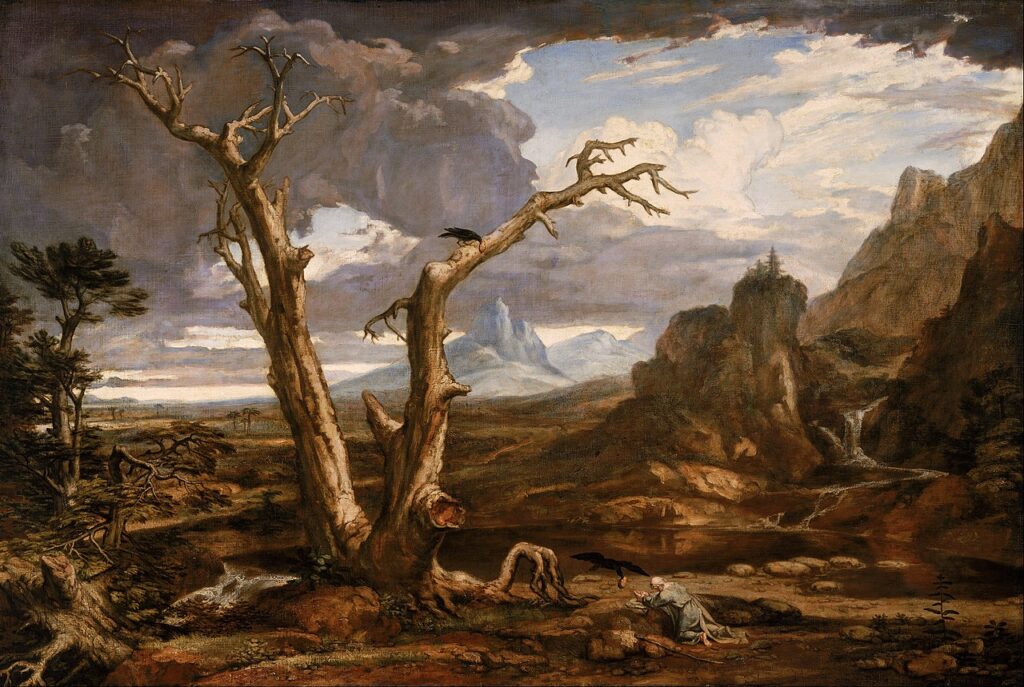PLANTING SEEDS FOR SUCCESS
Who doesn’t love a good secret, especially when God tells it? Jesus was telling the following crowds a parable about the importance of having a receptive heart to the words of Jesus. The immense crowds enjoyed following the latest trend in Galilee by this miracle working man but weren’t really interested in becoming true followers of Jesus. Jesus admonished the crowds to hear. He said, “Whoever has ears to hear, let them hear.” Apparently, they were hearing but not comprehending. They didn’t want to change their lives to follow, they just wanted to be part of the crowd and excitement.
The disciples, on the other hand, were wanting to know the meaning of what Jesus was saying. They had left all to follow Jesus. They tuned in to every word and when they didn’t understand asked Jesus to explain.
Jesus shares a wonderful promise with them when he said, “The knowledge of the secrets of the kingdom of heaven has been given to you, but not to them” (Matthew 13:11).
Here’s the parable from Luke’s gospel.
Luke 8:4-9 While a large crowd was gathering and people were coming to Jesus from town after town, he told this parable: 5 “A farmer went out to sow his seed. As he was scattering the seed, some fell along the path; it was trampled on, and the birds ate it up. 6 Some fell on rocky ground, and when it came up, the plants withered because they had no moisture. 7 Other seed fell among thorns, which grew up with it and choked the plants. 8 Still other seed fell on good soil. It came up and yielded a crop, a hundred times more than was sown.”
When he said this, he called out, “Whoever has ears to hear, let them hear.” 9His disciples asked him what this parable meant. 10 He said, “The knowledge of the secrets of the kingdom of God has been given to you, but to others I speak in parables, so that,” ‘though seeing, they may not see; though hearing, they may not understand.’”
Those who see but don’t see and hear but don’t hear or understand was a reference to the book of Isaiah. Jesus said in them (crowds) this prophecy is fulfilled. Look at this text from Matthew 13:
13 This is why I speak to them in parables:
“Though seeing, they do not see;
though hearing, they do not hear or understand.
14 In them is fulfilled the prophecy of Isaiah:
“‘You will be ever hearing but never understanding;
you will be ever seeing but never perceiving.
15 For this people’s heart has become calloused;
they hardly hear with their ears,
and they have closed their eyes.
Jesus continued to say the disciples were blessed because they had a heart to perceive and understand. They were that good soil that heard, retained, and persevered in the things of the Kingdom.
16 But blessed are your eyes because they see, and your ears because they hear.17 For truly I tell you, many prophets and righteous people longed to see what you see but did not see it, and to hear what you hear but did not hear it.
Jesus shares secrets of heaven with those who have receptive hearts. Those who hunger and thirst after righteousness will be filled (Matthew 5:6).
Hearing and understanding reveals a spiritual hunger, a seeking heart. Unlike the crowds, the disciples wanted more. They listened to the words of Jesus and learned. Their lives are impacted and changed. Jesus, the Great Shepherd declared, “My sheep know my voice and follow” (John 10:27). They hear and understand.

Then Jesus explains the secret meaning to his disciples by explaining how the soil received the seed (God’s Word) and produced a crop of a heart for God. They were becoming a new creation in Christ, being transformed into a godly character.
11 “This is the meaning of the parable: The seed is the word of God.
12 Those along the path are the ones who hear, and then the devil comes and takes away the word from their hearts, so that they may not believe and be saved.
13 Those on the rocky ground are the ones who receive the word with joy when they hear it, but they have no root. They believe for a while, but in the time of testing they fall away.
14 The seed that fell among thorns stands for those who hear, but as they go on their way they are choked by life’s worries, riches and pleasures, and they do not mature.
15 But the seed on good soil stands for those with a noble and good heart, who hear the word, retain it, and by persevering produce a crop.
Unlike the crowds, the disciples had good soil and a noble and good heart. They heard the words of Jesus, retained it, and persevered in their relationship with God. And they were productive.
KING SAUL’S EXAMPLE
In my reading this morning Saul illustrates the non-receptive heart. He had some seeds scattered, but his soil didn’t allow the seeds to take root. Although he had many opportunities to hear the word, retain it, and by persevering produce a crop, his heart remained unchanged. He didn’t have his ears on, or his eyes open.

The story in the Old Testament is found in 1 Samuel 9.
(To read the entire scripture text, click on the link: 1 Samuel 9
Samuel, Israel’s prophet and judge was God’s messenger not only to the people, but to Saul. The Israelites had grown distant in their relationship with God. When they asked Samuel for a king to be like other nations, God granted their request. God chose Saul, a tall and impressive young man without equal. In Saul’s time God spoke through prophets, like Samuel. Today we have the scripture as our divine revelation, and main source of hearing God speak. Prophet Samuel listened and obeyed God’s plan to make Saul the king of Israel.
5 Now the day before Saul came, the Lord had revealed this to Samuel: 16 “About this time tomorrow I will send you a man from the land of Benjamin. Anoint him ruler over my people Israel; he will deliver them from the hand of the Philistines. I have looked on my people, for their cry has reached me.”
17 When Samuel caught sight of Saul, the Lord said to him, “This is the man I spoke to you about; he will govern my people.”
18 Saul approached Samuel in the gateway and asked, “Would you please tell me where the seer’s house is?”
19 “I am the seer,” Samuel replied. “Go up ahead of me to the high place, for today you are to eat with me, and in the morning I will send you on your way and will tell you all that is in your heart.
20 As for the donkeys you lost three days ago, do not worry about them; they have been found. And to whom is all the desire of Israel turned, if not to you and your whole family line?”
SAUL ANOINTED 1 Samuel 10
(To read the entire scripture text, click on the link: 1 Samuel 10)
1 Samuel 10:1 Then Samuel took a flask of olive oil and poured it on Saul’s head and kissed him, saying, “Has not the Lord anointed you ruler over his inheritance? 2 When you leave me today, you will meet two men near Rachel’s tomb, at Zelzah on the border of Benjamin. They will say to you, ‘The donkeys you set out to look for have been found. And now your father has stopped thinking about them and is worried about you. He is asking, “What shall I do about my son?”’
This oil poured on Saul’s head for anointing was symbolic of the Holy Spirit’s empowering Saul for his leadership role as King of Israel. With the Holy Spirit he would be able to accomplish much more than just any King. God was fitting Saul and filling him with the Spirit’s power to lead Israel, God’s chosen people.
1 Samuel 10: 6 The Spirit of the Lord will come powerfully upon you, and you will prophesy with them; and you will be changed into a different person. 7 Once these signs are fulfilled, do whatever your hand finds to do, for God is with you.
Verse 9 says this happened. “God changed Saul’s heart, and all these signs were fulfilled that day.” Saul experienced the Spirit of God as he joined the prophets. Saul prophesied with them. The people were amazed at this new power in Saul’s life. But his anointing as King was not yet public knowledge, until Samuel announced it at Mispah. The people responded shouting, Long live the King!”
SAUL CONFIRMED KING
(To read the entire scripture text, click on the link: 1 Samuel 11)
The Holy Spirit comes powerfully upon Saul the second time as he led the charge against the Ammonites who were defeated. Then the people were exhilarated with their new leader and proceeded to publicly proclaim him king. At Gilgal they sacrificed offerings and held a great celebration as Saul was crowned king of Israel.
SAMUEL RELEASES HIS LEADERSHIP TO SAUL
Samuel who has served Israel since a young boy now old and gray, releases his leadership to King Saul. Samuel admonishes him to serve the true King of Israel, God.
“But be sure to fear the Lord and serve him faithfully with all your heart; consider what great things he has done for you. 25 Yet if you persist in doing evil, both you and your king will perish” 1 Samuel 12:24, 25).
Samuel also admonishes the hard-hearted people to recall God’s faithfulness through their history. He said to turn back to the Lord.
“But be sure to fear the Lord and serve him faithfully with all your heart; consider what great things he has done for you. 25 Yet if you persist in doing evil, both you and your king will perish (1 Samuel 12:24, 25).
SAMUEL REBUKES SAUL
(To read the entire scripture text, click on the link: 1 Samuel 13)
Saul was preparing to lead the charge against the vast and powerful Philistines. Samuel, as usual, would make the sacrifices to the Lord to prepare the troops to trust God for victory. Samuel told King Saul to wait for his arrival (1 Samuel 10:8)
Saul’s remarkable military son, Jonathan, had attacked the Philistine garrison in Geba. Saul claimed the victory and called the people to come Gilgal and prepare to fight the Philistines “as numerous as the sand on the seashore” (1 Samuel 13:5). Saul and his troops were at Gilgal waiting for Samuel to come. The troops with him were terrified and began to scatter. Saul waited for Samuel to come and offer sacrifices to the Lord before battle, as was customary.
1 Samuel 13 7b Saul remained at Gilgal, and all the troops with him were quaking with fear. 8 He waited seven days, the time set by Samuel; but Samuel did not come to Gilgal, and Saul’s men began to scatter. 9 So he said, “Bring me the burnt offering and the fellowship offerings.” And Saul offered up the burnt offering.
10 Just as he finished making the offering, Samuel arrived, and Saul went out to greet him. 11 “What have you done?” asked Samuel. Saul replied, “When I saw that the men were scattering, and that you did not come at the set time, and that the Philistines were assembling at Mikmash, 12 I thought, ‘Now the Philistines will come down against me at Gilgal, and I have not sought the Lord’s favor.’ So I felt compelled to offer the burnt offering.”
SAUL DID NOT KEEP THE LORD’S COMMAND
Saul couldn’t follow orders. He didn’t trust God. He didn’t trust Samuel. So he took matters into his own hands. He was king, after all! More importantly, Saul didn’t have a heart for God.
13 “You have done a foolish thing,” Samuel said. “You have not kept the command the Lord your God gave you; if you had, he would have established your kingdom over Israel for all time. 14 But now your kingdom will not endure; the Lord has sought out a man after his own heart and appointed him ruler of his people, because you have not kept the Lord’s command.”
Samuel was looking to Saul to hear his confession and sorrow over directly disobeying God. Instead, Saul gave excuses. It’s a human tendency to blame someone else for our sin. Saul blamed Samuel because he didn’t come earlier. Saul took no responsibility for his sin of disobedience. And because of that disobedience God would give his leadership to someone who had a heart after God.
OBEDIENCE BETTER THAN SACRIFICING
A third time Saul had opportunity to obey God. Saul just didn’t listen. The Lord came to Samuel, “I regret that I have made Saul king, because he has turned away from me and has not carried out my instructions” (1 Samuel 15:11). Samuel was very angry and cried out to the Lord all that night. Early the next morning Samuel went to find Saul, but heard he had gone to Carmel to erect a monument to himself in his own honor. Cold-hearted Saul wasn’t aware of his sin and instead built a monument to himself. He was proud and disobedient. His heart didn’t need God. He was self-sufficient. He wanted to look good in the eyes of the people and could not see how far from God he had drifted. His religiosity didn’t fool Samuel. God was grieved over Saul’s blindness. Once Samuel finds him, Saul boasts to Samuel that he carried out the Lord’s instructions. Samuel rebukes this disobedient, hard-of-hearing, hardened-soil king.
1 Samuel 15:22-24
But Samuel replied, “What pleases the Lord more?
Burnt offerings and sacrifices, or obeying the Lord?
It is better to obey than to offer a sacrifice.
It is better to do what he says than to offer the fat of rams.
23 Refusing to obey the Lord is as sinful as using evil magic.
Being proud is as evil as worshiping statues of gods.
You have refused to do what the Lord told you to do.
So he has refused to have you as king.”
24 Then Saul said to Samuel, “I have sinned. I’ve broken the Lord’s command. I haven’t done what you directed me to do. I was afraid of the men. So I did what they said I should do.
Although Saul said he had sinned, he continue to reject God. The seed of God’s words never took root. He feared the people more than he feared God.
OBEDIENCE – A KEY TO GOOD SOIL
The seed in the parable of Jesus is God’s Word. The soil represents the receptiveness of our hearts to the words of the Lord. The Word (seed) gets into our heart (soil) and changes us. We begin to sprout God fruit. As we hear, retain, and persevere in the Word we grow
- We live to do God’s will more than our own.
- We follow Jesus, “Not my will, but yours be done.”
- We are not self-sufficient but God-dependent.
- We obey.
- We trust God through the storms of life.
- We wait on the Lord until the answer comes.
- We seek God’s favor more than man’s approval.
- We fill our hearts and minds with God’s Word so it works to the core of our being and refines us.
- We live to be holy and seek to please the Lord.
- We work on pulling the weeds of worry, removing the rocks and thorns of the deceitfulness of wealth.
- We let the seeds take root in our good soil as we hear it, retain it and persevere in it!
Jesus said, “If you love me, you will obey what I command” (John 14:15}. This is a good motive for being in the Word regularly – so we will know God’s commands and obey. That’s the good soil.
But the seed on good soil stands for those with a noble and good heart, who hear the word, retain it, and by persevering produce a crop.
As we hear/listen to the Word of God, retain and apply it, we will become transformed in our character. We will persevere in being successful as a follower of Jesus. We will obey. There are still rocks to be moved (challenging choices of surrendering our will), weeds to be pulled (sins to be overcome), and waiting on God’s sunshine and rain (trusting through the hard days). Jesus made it clear a harvest would result, 30, 60, or 100 fold.
The crowds and Saul had opportunity to know God’s secrets but didn’t listen. They were consumed with the cares and worries of the world. They didn’t take seriously God’s Word. They didn’t let the seeds take root.

DAILY IN THE WORD
Jesus promises to share the secrets of the kingdom of God as we open our hearts to the seed of God’s Word each day. It is the heart of love and obedience of the fourth soil-worker that makes the difference. As we “hear,” “retain,” and “persevere” (obey) we will grow in God. We will know abundance. Jesus told his disciples they would know the secrets, and so will we.
“The knowledge of the secrets of the kingdom of God has been given to you, but to others I speak in parables, so that, “‘though seeing, they may not see; though hearing, they may not understand.’ Luke 8:10, 11
I want to learn more secrets. How about you?

















Ok let me know if you get. 🙂
Got it, thx.